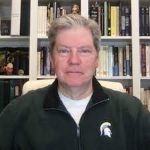Seeing the Invisible: Bringing Physics Phenomena to Life
Tools and Techniques to Help Students Visualize and Explore Physics Concepts
- Higher Education
- Virtual
- Webinar
- University Physics
- Conceptual Physics
- College Physics
- 30 Minutes
- Live Webinar
My Account Details
Log In to My PreK-12 Platform
Log In to My Higher Ed Platform
My Account Details
Log In to My PreK-12 Platform
Log In to My Higher Ed Platform
Fields marked by * are required.
Successfully Registered!
You are now registered for this event.
Your information will be used to provide you with the requested information and other information about McGraw Hill’s products and services. You may opt out at any time by contacting McGraw Hill’s local privacy officer or selecting “unsubscribe” at the bottom of any email you receive from us.
Join author and Professor Wolfgang Bauer for a 30-minute live webinar featuring 20 minutes of interactive demonstrations and assignable activities that help students visualize and explore the physics concepts discussed in lecture. Dr. Bauer will showcase ready-to-use activities that extend learning beyond the classroom, turning abstract ideas into engaging visual experiences.
Time will be given for questions, feedback, and open discussion. Participants will be encouraged to share input and ideas for using these visualization activities to deepen conceptual understanding and enhance student engagement in introductory physics courses.

Dr. Wolfgang Bauer is University Distinguished Professor of Physics and Astronomy at Michigan State University. His work focuses on energy efficiency, renewable power sources, mobility, big data, and computing. He has authored more than 200 publications and given more than 500 invited presentations in 24 countries. He is the author of several physics textbooks, including University Physics with Modern Physics, which published in 2024. His textbooks have been translated into Chinese, German, Korean, Spanish, and Portuguese languages, and he holds five patents on artwork authentication, cancer detection, and learning management systems. Among his honors are the 1992 National Science Foundation Presidential Faculty Fellow Award, the 1999 Alexander-von-Humboldt Foundation Distinguished Senior U.S. Scientist Award, and the 2003 ComputerWorld 21st Century Achievement Award for Education and Academia. He is a Fellow of the American Physical Society.